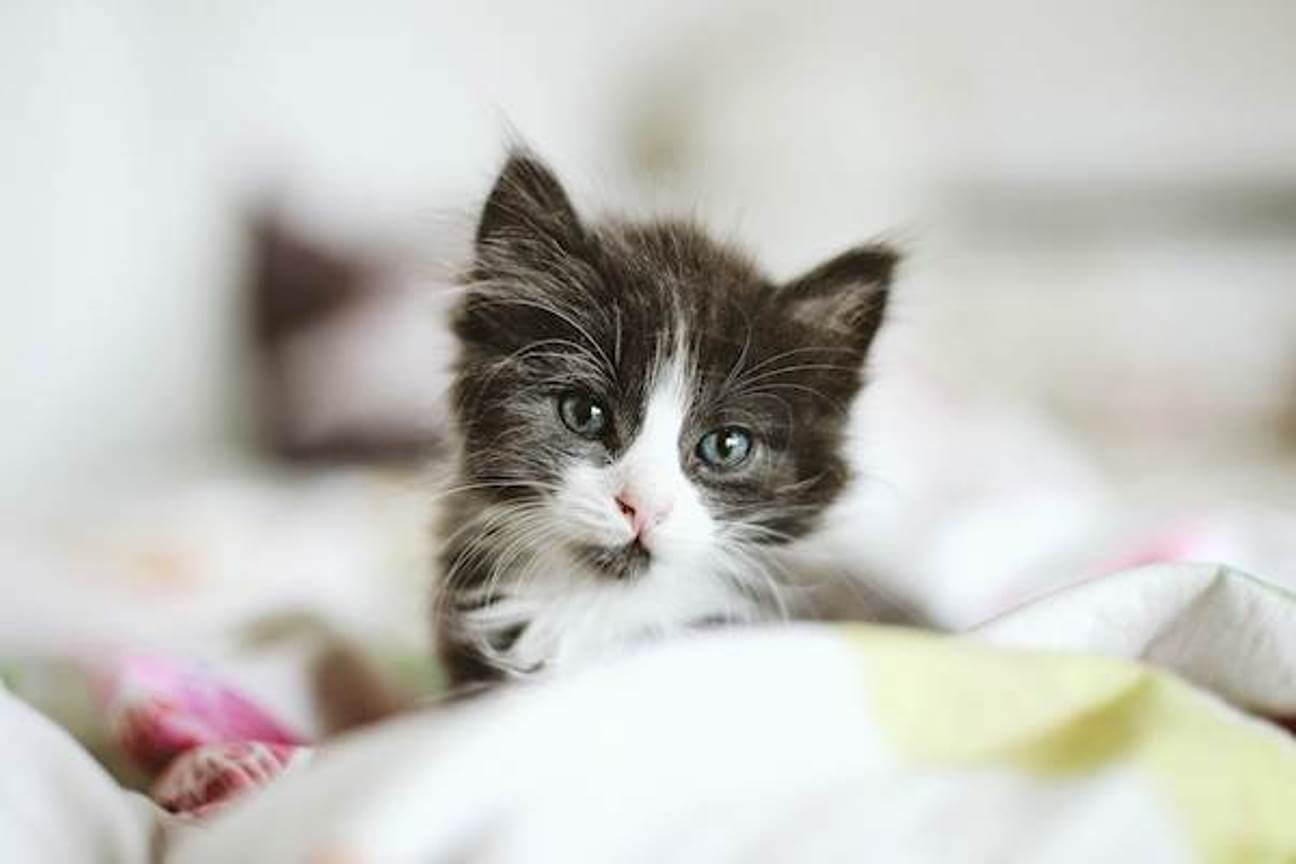Welcoming a kitten into your home is an exciting experience, but it can also come with its challenges. One of the most common questions new cat owners have is “when do kittens calm down?” Understanding the developmental stages of kittens and the factors that influence their behavior can help you provide a nurturing and supportive environment for your feline friend.
Kittens go through significant physical and behavioral changes as they grow from playful bundles of energy to more mature and composed cats. Their development is influenced by a combination of genetics, socialization, and environmental factors. By understanding the unique needs of kittens at different stages, you can create a harmonious and enjoyable home for your furry companion.
Kitten Development Timeline

Understanding a kitten’s development timeline is essential for providing optimal care and training. From birth to adulthood, kittens undergo significant physical, behavioral, and social changes. Environmental factors and socialization play a crucial role in shaping their overall development.
Neonatal Stage (Birth to 2 Weeks)
During the neonatal stage, kittens are completely dependent on their mother for nourishment and warmth. Their eyes and ears are closed, and they rely on tactile cues for navigation. Physical development is rapid, with kittens doubling their birth weight within the first week.
Transitional Stage (2 to 4 Weeks)
The transitional stage marks the beginning of sensory development. Kittens’ eyes and ears open, allowing them to explore their surroundings. They become more active and playful, developing coordination and balance. Socialization is crucial during this stage, as kittens begin interacting with littermates and humans.
Socialization Stage (4 to 8 Weeks)
This stage is critical for kittens’ emotional and behavioral development. They learn social cues, appropriate play behavior, and establish bonds with their caregivers. Kittens who receive adequate socialization are more likely to be well-adjusted and confident adults.
Juvenile Stage (8 Weeks to 6 Months)
During the juvenile stage, kittens continue to grow rapidly and develop physically. They become more independent and curious, exploring their environment and learning new skills. They also begin teething, which can cause discomfort and behavioral changes.
Adolescence (6 Months to 1 Year)
Adolescence is a period of significant physical and behavioral changes. Kittens reach sexual maturity and may exhibit hormonal fluctuations. They become more active and may challenge boundaries. Training and socialization are essential during this stage to prevent behavioral problems.
Adulthood (1 Year and Beyond)
Adulthood is a time of stability and maturity. Kittens have reached their full physical and behavioral potential. They are typically calmer and more independent, although they may still retain some playful tendencies. Socialization and training continue to be important for maintaining a healthy and well-adjusted adult cat.
Factors Influencing Kitten Calming
A kitten’s temperament and energy levels are influenced by several factors, including age, breed, early experiences, and environmental factors.
Age
As kittens mature, they naturally become calmer and less energetic. Young kittens are full of energy and often engage in playful and mischievous behavior. However, as they age, their energy levels gradually decrease, and they become more settled and relaxed.
Breed
Different cat breeds have distinct temperaments and energy levels. Some breeds, such as Ragdolls and Persians, are known for their calm and gentle nature, while others, like Siamese and Abyssinians, are known for their high energy and playfulness.
Early Experiences
Early experiences, particularly handling and socialization, can significantly shape a kitten’s personality. Kittens that are handled and socialized early on are more likely to be confident, friendly, and well-adjusted. Conversely, kittens that are neglected or abused may become fearful or aggressive.
Environmental Factors
Environmental factors, such as noise levels and routine, can also affect a kitten’s behavior. Kittens that live in noisy or chaotic environments may become stressed or anxious, while kittens that have a regular routine are more likely to be calm and relaxed.
Calming Techniques
Creating a tranquil environment for your kitten is crucial for its well-being and behavior. Implementing effective calming techniques can help reduce anxiety, promote relaxation, and foster a harmonious household.
Creating a Calming Environment
*
-*Scent diffusers
Pheromone diffusers release synthetic pheromones that mimic the natural calming signals produced by mother cats, providing comfort and security.
-
-*Music
Soft, calming music can soothe and reduce stress levels in kittens. Consider classical, instrumental, or nature-inspired melodies.
-*Soft lighting
Dim or indirect lighting creates a cozy and relaxing atmosphere, reducing overstimulation and promoting sleep.
Redirecting Energy
*
-*Interactive play
Engage your kitten in regular play sessions using interactive toys like wands or laser pointers. This provides mental and physical stimulation, redirecting excess energy.
-*Puzzle toys
Puzzle toys, such as food dispensers or treat balls, encourage mental activity and provide a positive outlet for energy release.
Calming Supplements and Pheromone Products
*
-*Calming supplements
Over-the-counter calming supplements containing ingredients like valerian root or chamomile can help reduce anxiety and promote relaxation.
-*Pheromone sprays or wipes
Pheromone products mimic natural cat pheromones, creating a sense of safety and comfort in specific areas or on objects.
Managing Kitten Hyperactivity
Excessive hyperactivity in kittens can be a challenging but manageable behavior. Understanding the underlying causes and implementing effective strategies are crucial for ensuring a harmonious and balanced environment for both kittens and their owners.
Providing Adequate Physical and Mental Stimulation
Kittens are naturally curious and energetic creatures. Providing ample opportunities for physical activity, such as interactive play sessions, chasing toys, and climbing structures, is essential for channeling their excess energy. Mental stimulation is equally important. Engage your kitten with puzzle feeders, treat-dispensing toys, and interactive games that challenge their cognitive abilities.
Redirecting Destructive Behaviors
If your kitten exhibits destructive behaviors like scratching or biting, it’s important to redirect their energy appropriately. Offer acceptable alternatives, such as scratching posts, chew toys, and designated play areas. When they engage in destructive behavior, calmly interrupt them and redirect them to the appropriate outlet.
Establishing Appropriate Boundaries
Setting clear boundaries is essential for managing kitten hyperactivity. Establish designated areas for play and relaxation, and enforce these boundaries consistently. Avoid encouraging hyperactive behavior by chasing or engaging in overly energetic play. Provide a safe and calm space where your kitten can retreat and rest when needed.
Potential Underlying Medical Conditions
In some cases, excessive hyperactivity may be a symptom of an underlying medical condition. If your kitten’s hyperactivity persists despite implementing the above strategies, consult with a veterinarian. They can rule out any potential medical issues that may be contributing to the behavior.
Seeking Professional Help

In some cases, it may be necessary to seek professional help to address kitten behavior issues that persist despite implementing the calming techniques discussed earlier. Professional assistance can provide valuable insights and guidance to effectively manage and resolve these issues.
Veterinarians and animal behaviorists are qualified professionals who can diagnose and treat behavioral problems in kittens. Veterinarians can rule out any underlying medical conditions that may be contributing to the behavior, while animal behaviorists specialize in understanding and modifying animal behavior.
Finding Reputable Professionals
When seeking professional help, it is important to find reputable and experienced veterinarians or animal behaviorists. Look for professionals who are certified by reputable organizations such as the American Veterinary Medical Association (AVMA) or the International Association of Animal Behavior Consultants (IAABC).
You can also ask for recommendations from other pet owners, animal shelters, or local pet supply stores.
Preparing for Consultations
Before the consultation, it is helpful to gather as much information as possible about your kitten’s behavior. Keep a detailed record of any incidents, including the date, time, and specific behaviors observed. Take videos or photos if possible to provide visual evidence.
This information will help the professional understand the nature of the problem and develop an appropriate treatment plan.
Last Word
The journey of raising a kitten can be filled with both joy and challenges. By understanding their developmental timeline, the factors that influence their behavior, and effective calming techniques, you can provide a nurturing and supportive environment for your feline friend.
Remember that every kitten is unique, and their individual personality will shape their calming process. With patience, consistency, and a lot of love, you can help your kitten transition into a well-adjusted and happy cat.
Helpful Answers
How old are kittens when they start to calm down?
Most kittens start to calm down around 6-8 months of age. However, this can vary depending on the individual kitten’s personality and breed.
What are some effective calming techniques for kittens?
Effective calming techniques include creating a calming environment with scent diffusers, soft music, and soft lighting. Providing interactive toys and engaging in regular play sessions can help redirect their energy. Calming supplements or pheromone products can also be considered, but consult with your veterinarian before using them.
When should I seek professional help for my kitten’s behavior?
If your kitten’s hyperactivity is excessive or persists despite implementing calming techniques, it’s recommended to seek professional help. A veterinarian or animal behaviorist can help diagnose any underlying medical conditions or behavioral issues and provide personalized guidance.




